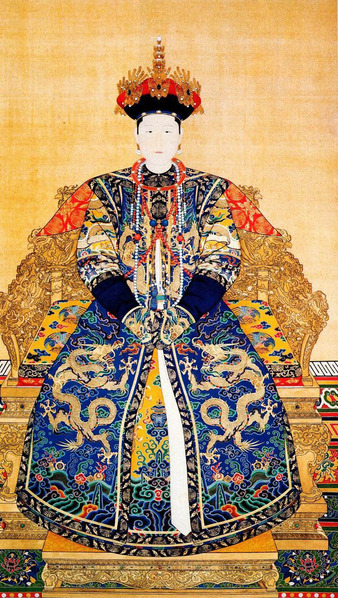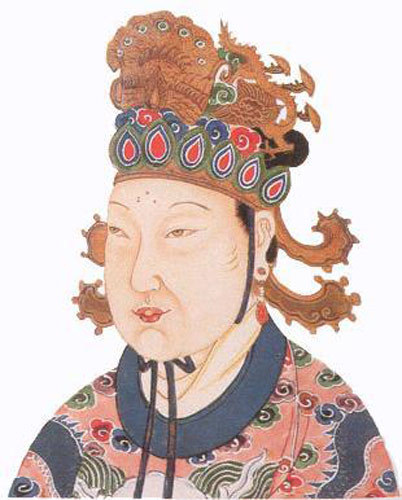
I’m taking a step out of my normal Badass Women posts: I’m posting someone who’s not a writer, and also not Hispanic. Gasp.
The truth is, I recently started a new job teaching English to Chinese students, and realized that I knew close to nothing about China. Besides the word Communism, and that is embarrassing. So I picked up a copy of John Keay’s “China: A History”, which begins, literally, at the beginning, and one figure stuck out to me: Wu Zetian.
Not only was she the only female administrator of the court in China’s impressively long history, she was the only woman in 4 millennia of Chinese history to also claim the name ‘empress’, and ruled from 690-705 AD.
Wu Zetian started out as a consort and wife to the Emperor Taizong, and when he died, she married his successor and son. When he suffered a debilitating stroke only a few years later, she officially became the administrator of the court, and maintained her power for many years, eventually taking the name of empress for herself.
This was not atypical of consorts at the time in China; many ruled through ill husbands or sons who were too young to take command of the empire. What differentiates Wu Zetian from these other women was that after ruling first through her husband and then through her sons until 690 AD, she then assumed the title of empress (Huangdi)–and was the first woman to do so, creating her own dynasty (the Zhou dynasty) like so many men before her had done. And then she continued to rule for another 15 years, until her death.
Wu Zetian had a childhood unlike the majority of girls in China. She had a father who encouraged her to read and to learn, which she loved and continued to do even after becoming a consort and wife to the emperor.
Wu Zetian proved to be an independent woman and thinker, making her own decisions to the extent that she could in the time in which she lived. After the death of her husband, it was customary for all the wives to retire to a Buddhist monastery. But Wu Zetian, having had an affair with the successor to the throne, had other plans, and convinced him to bring her back to the palace as his wife. She was a woman who had plans for her destiny, and was determined to fulfill them.
Her reign was a time of literary prosperity, of wealth and prosperity for the people, and of expansion of Chinese territory. Although some scholars refer to her dynasty as merely an “interruption” of the Tang dynasty, it cannot be ignored that she ruled either as regent or as empress for a period of more than 45 years, and had lasting effects on not only China as a country, but on women’s history.
